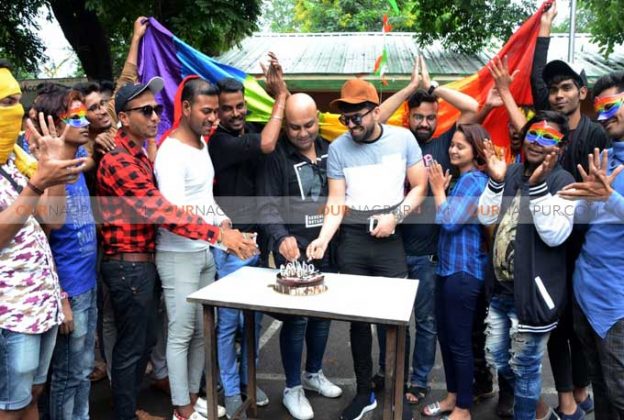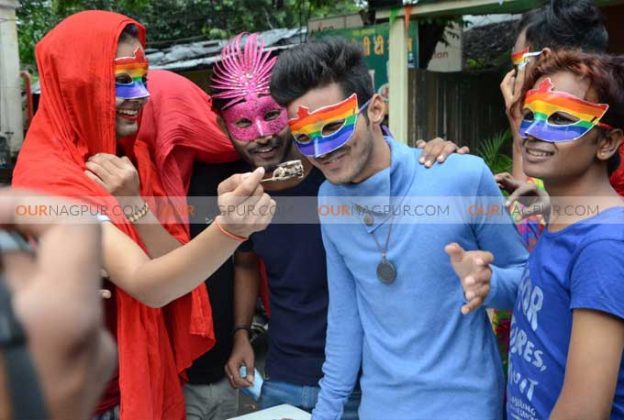Nagpur: India’s top court scrapped a colonial-era ban on gay sex on Thursday in a landmark judgement that activists hope will uphold the right to equality.
LGBTIQ (lesbian, gay, bisexual, transgender/transsexual, intersex and queer/questioning) supporters celebrate after the Supreme Court in a landmark decision decriminalised homosexuality by declaring Section 377, the penal provision which criminalised gay sex, as “manifestly arbitrary”; in Nagpur on Sept 6, 2018.
Gay sex had been punishable by up to 10 years in jail.
Activists welcomed the ruling.
“Thanks to all that fought for this, braving the worst sort of prejudice. This is a good day for human rights,” Meenakshi Ganguly, South Asia director for Human Rights Watch said on Twitter.
“It is not only about decriminalising but recognising our fundamental rights,” Akhilesh Godi, one of the petitioners in the case, told Reuters shortly before the judgement was announced.
The judges in the case had previously said that gay people in India faced deep-rooted trauma and live in fear.







